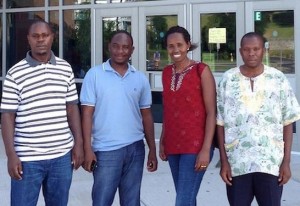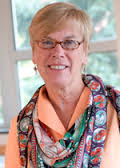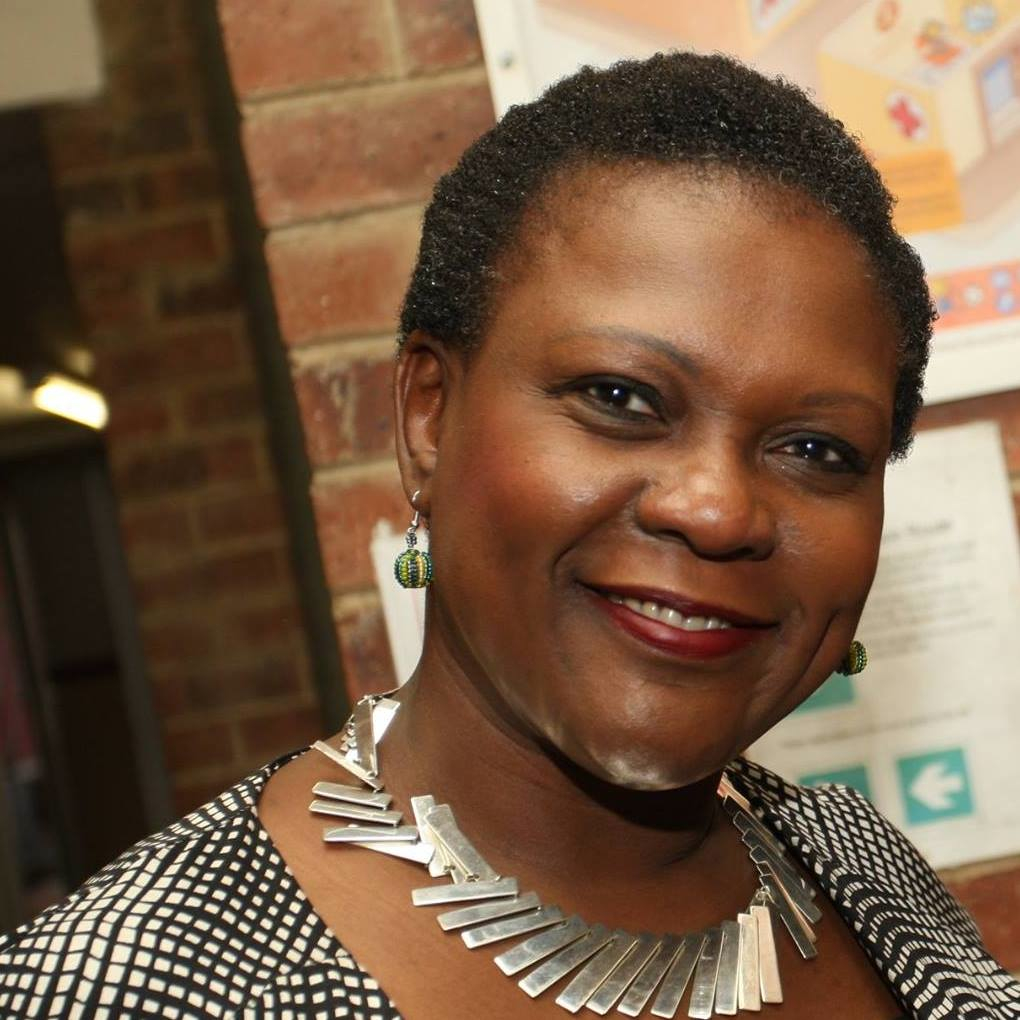(Editor’s note: Alumna Sarah (Webb) Inoue, Ph.D., a 2012 graduate of the iSchool’s doctoral program in information science and technology, has led several initiatives for the iSchool in the role of post-doctoral researcher and project manager for international outreach. She worked with the University of Rwanda’s College of Education to start a program in teacher-librarianship there; lead the iSchool’s collaboration with Effat University in Saudi Arabia; and taught an alumni course on international librarianship in Florence, Italy. She has been an adjunct professor with the iSchool for several years. She currently is a consultant and grant-writer.)
____________________________________________________________________________________________________________
I played a small role in getting an iSchool in Uganda, and it felt like a real achievement.

Alumna Sarah Inoue
That step means there now is an Information School on all six of the world’s habitable continents. That’s a real point of pride to those of us in the iSchool world, and to the iSchool people who helped facilitate that achievement. Here is the timeline of how that milestone occurred.
iSchool Caucus
For perspective, in 2008, the number of iSchools involved in the iSchool Caucus numbered only 21, and most of those were located in North America (along with Singapore Management University in Asia). But just a few years later, membership in the iCaucus and the iSchool group began growing rapidly.
In 2012, when Liz Liddy, then-iSchool Dean and now Interim Vice Chancellor and Provost at Syracuse University, began serving as the Chair of the iSchool Caucus, there were iSchools on five continents: North America, South America, Europe, Asia, and Australia. However, Africa was still without an iSchool.
It would take three years and two trips to East Africa, but as of this spring, there now is an iSchool on every habitable continent in the world. That’s because
Makerere University in Uganda was able to join the iSchools Caucus this year.
Here’s how Syracuse University and our own iSchool helped.

Rwandan teachers took a distance certificate program at the iSchool with the goal of increasing teacher-librarianship in their country. From left: Bernard Bahati; Jean Pierre Mugiraneza, Chantal Dusabe, Bakai Kabeba.
A Start in Rwanda
It all started in Rwanda, a small country in East Africa, with no library and information science university programs.
Not only did the country have no programs to train information professionals, very few people in the country (perhaps as few as six people) had a master’s degree in library and information science.
In 2012, when then-Dean Liddy learned of this, she asked me to see if there was a way to change that situation.
Before long, Dean Liddy and I traveled to Rwanda for a week-long workshop and a discussion on creating library and information science programs in Rwanda.
The discussion took place with university presidents, education leaders, and faculty at many of the institutions of higher education in that country.
Two Initiatives
Out of that discussion and work, two projects happened:
- One was a funded project in Rwanda, in which Syracuse University worked with the University of Rwanda’s College of Education to create a bachelor of education in library and information science. You can read more about that project here.
- The other occurred because Dean Liddy’s tweets read by Elizabeth Ngonzi, an alumna of our school. Ngonzi immediately offered to help introductions in Africa, where she knew some prominent East Africa citizens. Liz Ngonzi thought they might be able to bring our work to the attention of others who could help.
Getting Introduced
Dean Liddy enthusiastically accepted the offer, then ‘Liz’ Ngonzi began to arrange our meetings. She connected us to the Minister of Information and Communication Technology (ICT) in Uganda at the time, the Honorable Ruhakana Rugunda. (He is now Uganda’s Prime Minister.) Then-Minister Rugunda was pleased to hear about our ideas for Rwanda–but he also asked if we could help Uganda, his own country, to have an iSchool, and to help them become part of the iSchools Caucus group.
After that suggestion, in October 2012, Liz Ngonzi and I traveled to Uganda on the iSchool’s behalf. Our destination was Makerere University, which has the East African School of Library and Information Science (EASLIS), one of the oldest library schools in Africa. That seemed like a good place to start the conversation.
Meetings in Uganda
While we were in Uganda, we also met with the Permanent Secretary of Gender, Labour and Social Development, the office that oversees Uganda’s public libraries; the HIVE Co-lab, an incubator for entrepreneurship; and more people from the Ministry of ICT.
We learned of a new development–that Makere’s EASLIS School had joined with the School of Computing and Informatics Technology there–to form the College of Computing and Information Science (COCIS).
Since COCIS had all the makings of an iSchool, we suggested that they apply for membership to the iSchool Caucus. At the time of our visit, COCIS did not have a Principal (a position like that of dean), however, the Dean of EASLIS, Constant Okello-Obura, was very interested in having COCIS join the iSchools organization.
Ugandans Visits U.S.
The following February, Okello-Obura and two colleagues from COCIS came to the annual iSchools Caucus iConference in America. There, they participated in the meetings and talks, and also met with Liz Liddy and Michael Seadle (who was then in charge of the membership committee). Later that year, Okello-Obura became the Principal of COCIS. His desire to join the iSchools remained strong.
O ver the next year, the iSchool helped COCIS with drafts of their membership application, which was submitted in late 2014. Happily, it was approved in early 2015, and Makerere University joined the iSchools organization in March.
ver the next year, the iSchool helped COCIS with drafts of their membership application, which was submitted in late 2014. Happily, it was approved in early 2015, and Makerere University joined the iSchools organization in March.
I believe I can speak for Liz Liddy, Liz Ngonzi, and myself in saying that we could not be more proud to have COCIS and Makerere University join the iSchools Caucus, and to know that our school and our efforts played an introductory, but key part in that process.
Have you got a comment about this initiative? Please leave your response here!



